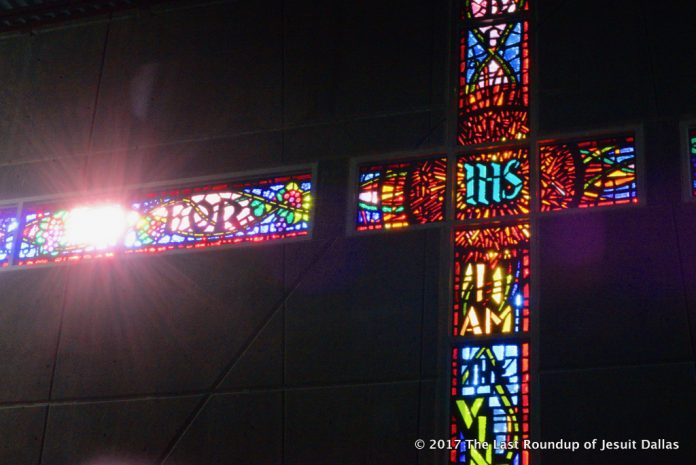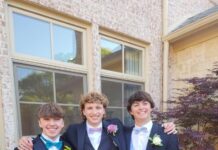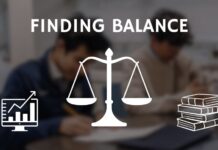I know this title is very aggressive and pessimistic. And to be honest, when I read it, it does seem a little hyperbolic. But I would have to say it probably is the best way to describe it. To many, it probably sounds very ironic for someone to say their fourth year of high school was the “worst.” After all, senior year usually connotes freedom and being the “top dog” of the school. You get to go off campus for lunch. You get a slew of free periods. You can spend half your day playing chess with Mr. Shoemaker up in the senior commons. You get freshly brewed coffee all day, every day. You can wear bowties and cool blazers. Classes tend to be more relaxed (unless you take AP). What could not be to love about senior year? Well, for obvious reasons, the Class of 2020 has had a unique senior year, to say the least. But beyond the anomalies which disrupted my class’s senior year as a whole, there have also been some personal circumstances which have complicated my senior year and my life, forever. While there are definitely good things that happened to me during my senior year, I would be lying to myself if I called my senior year “great.”
Coronavirus Chaos
This year’s senior class got robbed. Whereas second-semester senior year usually entails laying back and letting the college decisions roll in as you close the books on your high school career, allowing you to spend time with friends and take a few more months to enjoy Jesuit, this second semester involves “shelter-in-place” and staying six feet apart from everyone around you. The COVID-19 pandemic, which started wreaking havoc in the US around mid-February, has gone nationwide, infecting tens of thousands of people and killing hundreds. As a result, Jesuit followed the actions of many school districts around the nation. It closed its doors, moving to a digital learning platform. As the crisis continues to worsen, it is almost certain students will not be back on campus for the remainder of the year. And it doesn’t just stop with classes: there will likely be no prom, graduation is still an unknown, and I might not see the teachers and guys I have built relationships with for the past four years as a Jesuit student again.
It is hard to think that Wednesday, March 11, 2020, would be the last time the Class of 2020 walked through Jesuit’s halls as students. What an abrupt ending to a senior year! Many people have told me that once everyone goes off to college, the number of relationships you have with friends from high school starts to diminish. I, along with my fellow senior classmates, have worked hard for the past 3 ½ years in order to prepare for college and our futures. Now that the hard work was behind us, I was looking forward to spending these last few months connecting with friends in a less stressful atmosphere. Well, that was stolen from my 264 classmates and me. We get to spend the last few months quarantined.
Now, I am not by any means delegitimizing the severity of the pandemic. It annoys me how selfish some people are in still going to the beaches and public places when health and state officials are warning people of the risks. It is an unfortunate situation that the Class of 2020 will not get the closing chapter of high school they were hoping for and deserved.
Derailment
March 5, 2020. Everything that day started typically, like clockwork: I woke up at 5:30 am, drove to Starbucks, ordered a quad Grande, got ahead on homework before school, and went to class, just like any other day. At 9:04 am, I got a message from my Dad saying I had an appointment with Dr. Katz, my primary physician, at 4:00 pm. I was irritated with the timing because I had already missed two days for a college interview in California earlier that week, and now, I was possibly going to have to miss ninth period AP Macroeconomics, a class I couldn’t miss. The day went on as usual: Tournament of Scholars in Dr. Degen’s AP Lang class, a philosophical discussion at lunch, telling Mr. TJ Howard terrible dad jokes in AP Physics, and hearing Ms. Ochs intensely lecture about fiscal policy in AP Macro. I remember walking down B Hallway, talking with two of my friends who were in my AP Macro class with me, my last words being, “Sorry I can’t talk with y’all right now, but I have to go to a doctor’s appointment.” And that was it — the last day of normalcy.
I arrived at my appointment, not entirely sure why I was there. I wasn’t sick and was in no pain. I questioned why I had to sacrifice talking with my friends to make it to some unnecessary doctor’s visit. My parents were concerned because they thought I was eating and drinking too much while still losing weight and always seemed tired. I had noticed these things but didn’t think much of them, not perceiving them to be too abnormal. The nurse started taking the common measurements: weight was lower, but in the healthy range, height was still 5’11, blood pressure was reasonable, and the nose and ears were fine. “We’d like to run a urine test just to make sure everything is ok.” It was a strange request for Dr. Katz to tell me, but I wasn’t going to argue. I vividly remember looking at my Dad and complaining, “They need to hurry up, I have things I need to get home and get done.”
Dr. Katz walked back in with a look on his face that I had never seen before in my seventeen years of visits. It was a look of dread and fear. He looked at my parents and said, “His sugar levels are off the charts, and he has high amounts of ketones. You need to go to Children’s Hospital emergency room right now.” At this point my Mom was crying, my Dad had tears forming in his eyes, Dr. Katz was telling my Dad that he was going to make some calls, and I was confused as to what was going on. So, I asked, “What the hell is going on?” Without hesitation, Dr. Katz answered, “I think you have diabetes.” I couldn’t believe those words. I broke down in tears. My Mom and Dad felt helpless as they embraced me. I remember choking out the words, “It can’t be real. Tell me it’s just a dream. It can’t be real. Wake me up!” But as my Dad told me, “Buddy, I’m sorry, this is real.”
When I arrived at Children’s Health in Plano, they started trying to flush out the ketones using IV fluids, but my levels were still very high. The ER doctor said, “We need to take him to the ICU.” I stayed in intensive care overnight as my blood sugars began to stabilize. The only thing comforting me was my Dad being with me 24 hours a day, never leaving my side and spending every night with me at the hospital. My ketone levels (high ketone levels lead to diabetic ketoacidosis, causing a coma and death if untreated) stabilized and my blood sugar started to come down as well. The endocrinologist came in Friday morning and made the diagnosis official: Type 1 Diabetes. There was nothing I could have done to prevent it. It just happened that my immune system consisted of antibodies that attacked and destroyed the cells in my pancreas needed to produce insulin. It just happened that I was the unlucky winner of a chronic, incurable disease. I became more and more frightened as the diabetes specialist outlined how, if left untreated, I could slip into a coma in a matter of days and die from diabetic ketoacidosis or pass out and slip into a coma from low blood sugar. It scares me that diabetes raises my risk of heart disease and blindness long-term.
At this point, I should probably point out one of my greatest fears: needles. Anyone who knows about the treatment for T1D knows that this fear is not a good mixture. The idea of pricking my finger 4+ times a day and then injecting insulin 5+ times a day sounded like a life of horror. Things I took for granted, like putting unknown quantities of food on my plate during lunch at Jesuit would no longer be possible. Going to Chick-Fil-A after school and getting a milkshake was no longer a reality. Rather than being a time of fellowship, laughter, and conversation, meals now were only associated with pain and a past life I had lost. I felt confined. The simplest things like grazing for food when I got home from school were no longer possible for me. Eating was now on a rigid schedule with set carbohydrate limits. I felt my freedom was gone.
I never cried so much before in my life as I did that next week. I would lie on my bed for hours sobbing and reflecting on all the things I loved doing before that I couldn’t do anymore. I felt alone. I didn’t feel normal anymore. Even though no one could look at me and tell I had diabetes, I felt isolated and different from everyone. I asked, “Why me?” only to get no answer.
The only thing worse than not being able to eat the same foods I wanted and having to count the carbs in everything I ate was having to give myself multiple daily injections. I had gotten used to other people doing it. Still, I could not get over my fear of injecting the insulin into my leg or stomach, sending a burning sensation throughout my body. I would set the needle right next to my leg, knowing I just had to push in half an inch, but I couldn’t. I would drop the needle on the table and just cry, cursing myself for being a coward and wondering what I had done to deserve this.
However, when I finally gave myself that first shot, I felt more pride and happiness than any grade I had ever gotten before. I felt more joy than any college acceptance I had received. At that moment, something changed. I went from being controlled by the disease to controlling it. I could be independent again.
As I write this, it has been twenty days since that initial doctor’s visit. While it is not fun to sit in quarantine, it has allowed me to think about everything that has happened. Getting Snapchats and texts from friends asking about how I was doing in the week after my diagnosis showed me who cared about me. Having teachers reach out to me and tell me that I was in their prayers revealed to me firsthand Jesuit’s compassion.
While I was at Children’s, one of the ER doctors who first saw me (and also had T1D) said something that has stuck with me even with all the mental craziness I have gone through: “You can either change your life to fit diabetes, or you can change diabetes to fit your life.” I’ll take the second option.
Finding Meaning in Tragedy
Anyone who knows me knows I can be pessimistic sometimes. That being said, I am not going to spout some cliché messages like how this taught me to appreciate what I have. For me, four realities have struck me in this difficult time:
- Life is unpredictable and unfair– As I said before, there was nothing I could have done to prevent getting this disease. While eating healthier, exercising more, drinking more water, etc. are all good things, none of that would have prevented this from happening. I remember one of the doctors telling me that my ketone levels were just shy of making me go into diabetic ketoacidosis and that had I not been diagnosed when I was, I could easily have died within five days. I never would have imagined that this would have happened to me. I had everything going my way: my grades were excellent, I was happy, I was much more social, I had already been accepted into one of my top colleges, and I was excited about my future. Then the future I had been envisioning and the life I had been living all came crashing down. And while I have been regaining my confidence and trying to recreate my previously “normal” life, I know that will never truly happen. But while it might not be “normal,” it does not change my ambitions and goals for the future, and I will not let this condition stop me.
- You are going to hit an obstacle– I’ll be the first to say that the teenager mentality of invincibility had somewhat set in in my head. I felt like there was nothing that could bring me off my high horse. Then my Mom got diagnosed with cancer in March 2019, my senior year abruptly ended, and I got diagnosed with a chronic illness, all in a year. Looking at this from a broad view, I see my diagnosis as the second major obstacle I hit. It wasn’t the end of my life, but it certainly was a setback that will be with me for the rest of my life. The truth is this will not be unique to me. Everyone will encounter major obstacles in their life. It could be the death of a loved one, a breakup, a chronic diagnosis, a financial crisis, or some other catastrophe. We will all encounter unexpected and unfair challenges in our lives. And I do not say this to sound like a fatalist or nihilist but rather to raise awareness that some adverse, life-altering events will happen. The part that is not destined is the response. How do you handle it? I could very easily still be sobbing in my bed, having a pity party, but that benefits no one. It doesn’t progress my life nor make me any healthier or better of a person. Bad things happen in everyone’s life but overcoming and moving forward reveals your true character and strength.
- It’s not, “I can’t do this;” it’s, “I can’t do this yet”– As I said earlier, my greatest fear had always been needles. I had passed out from vaccines before and have tried to snatch shots out of nurse’s hands (yeah, it was bad). During the first week I was at home, I kept falling short of being able to give myself an insulin injection, unable to inflict pain on myself. I cried because I felt like I would never be able to have the courage to get over my fear. I would repeatedly say, “I can’t do this.” My Dad would then put his hand on my shoulder and tell me, “It’s not that you can’t do this; it’s that you can’t do this yet.” I did not believe him at the time. I believe I can overcome a problem when I know the steps needed to solve it, but I did not know the steps needed to get over my fear of giving myself an injection. I just had to do it. And one day, I did. I don’t know why it was that day, but it just happened that I could do it. I look back and realize that my Dad was right (as he usually is). Looking at things in terms of absolutes leads to a depressing and negative outlook on the world. If you tell yourself that you can never do something, you won’t. However, by adding “yet” to the end, you humble yourself in the present, acknowledging that at that moment in time, you are limited in your ability. However, you also affirm that at some point in the future, you will overcome whatever obstacle you are facing.
- We all have crosses to bear – There is no physical indication that I have Type 1 Diabetes. I don’t have scars on my body from surgery nor has my appearance changed. Yes, I might have to excuse myself during lunch to administer insulin, but, on the surface, I look the same. My emotional state, however, has gone through some tough changes. The Wednesday before Spring Break, I spent a few hours at Jesuit planning with teachers how I would accomplish makeup work. When I passed classmates and friends in the hall, they didn’t suspect much. Some thought that I had been out with a bad case of the flu. I did not take offense to any of it, but I found it interesting how I was still going through emotional craziness and no one was the wiser. It didn’t reveal to me that people didn’t care, but it did show me how there is a lot about other people we do not see. If you are driving on the highway and someone honks at you and cuts you off, you might think that person is terrible, mean, or a jerk; however, you don’t know if that person just got fired, laid off, is going through a divorce, or some other difficult situation. We need to, as a society, become more cognizant that we do not know everything that is going on in someone else’s life, and, therefore, practice restraint before we make any conclusions about others.
Why I Wrote This
In writing this piece, it has given me another chance to reflect and process everything that has happened to me over the past few months. Part of why I wrote this was for personal therapy. Thank you for being part of my recovery. I have always had success in writing down my thoughts and feelings to help me cope with a difficult situation. I wanted to use my life-changing diagnosis to show that life throws some cruel things in your path. It is bound to happen; it’s not a matter of “if” but “when.” The important part, however, is the next step you take that determines if the circumstance will control you, or if you will control the circumstance. While I could have simply written this down on a Word document and saved it away to some random folder on my desktop, I thought it would be beneficial to share my experience with the Jesuit community that I dearly love and have been a part of for the last four years.
To all my classmates, teachers, and friends who I have interacted with over the last four years at Jesuit, thank you!






